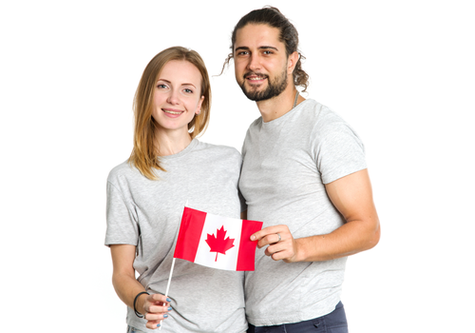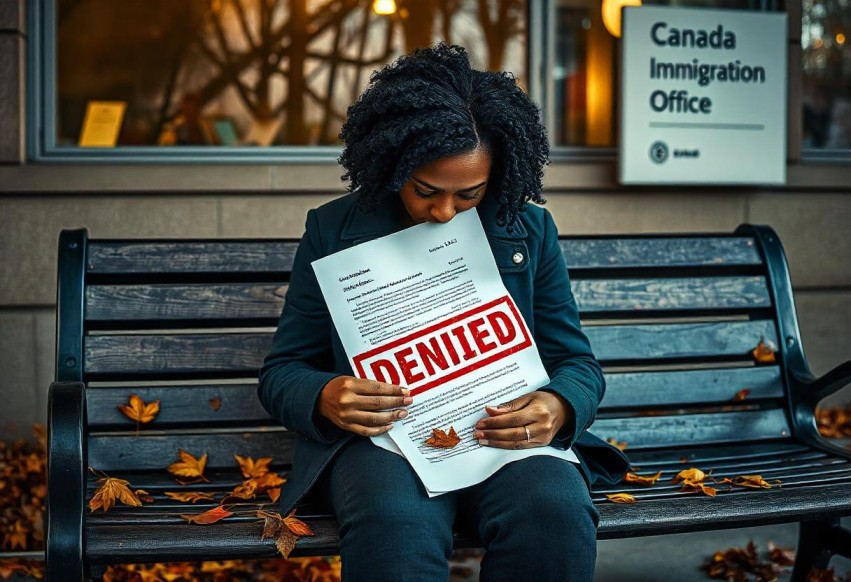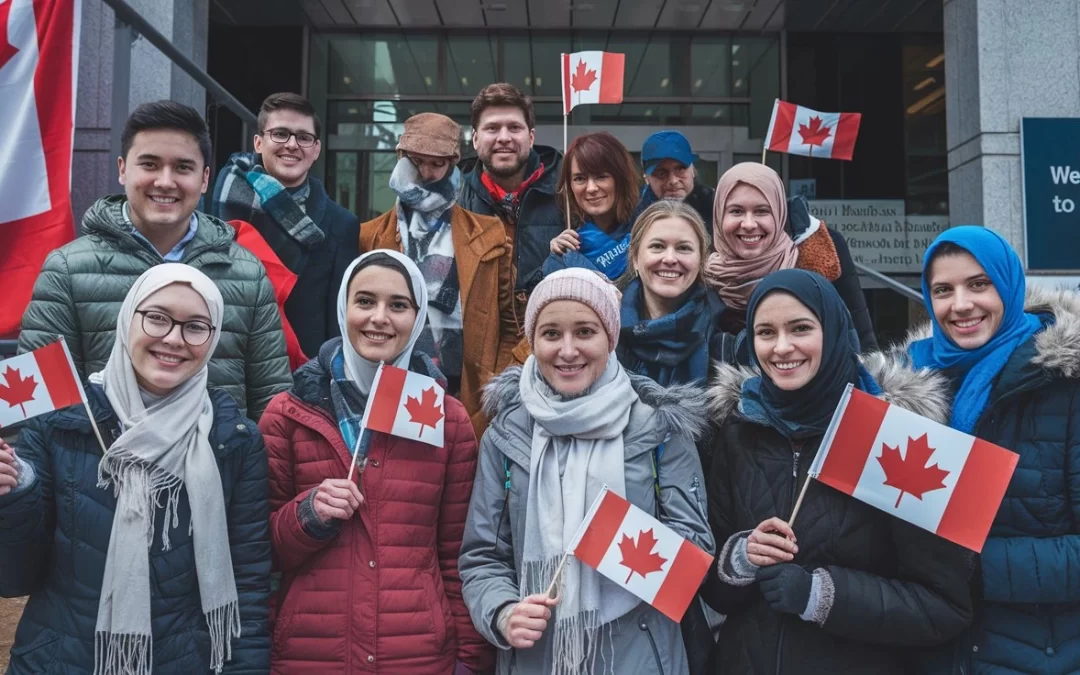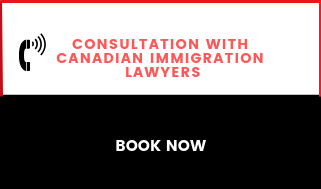
by Immilaw Team | Jan 17, 2025 | Canada Immigration
Canada is an attractive destination for immigrants for various reasons, including its welcoming environment for newcomers, diverse opportunities for skilled workers, and high quality of life for all its residents. Additionally, the nation prioritizes social welfare with comprehensive healthcare and education systems that enhance the overall well-being of residents. The country makes it a sought-after location for those looking to build a better future for themselves and their families.
Sponsoring a spouse or partner for immigration to Canada is a crucial way to reunite families and allow loved ones to start a new life together. The Canadian spousal sponsorship program enables Canadian citizens and permanent residents to bring their spouses, common-law partners, or conjugal partners to Canada as permanent residents.
There are two main pathways for this process: Inland sponsorship for couples living together in Canada and Outland sponsorship for couples with one partner outside Canada. Each pathway has specific requirements, but both aim to ensure that relationships are genuine and that families can be together in Canada.
Who is eligible to sponsor a Spouse or Partner for Immigration to Canada?
Let’s check who is eligible to sponsor a spouse or partner for immigration to Canada.
Eligibility Requirements for Sponsors
- Age: Sponsor must be at least 18 years old.
- Status: Sponsor must be either a Canadian citizen or a permanent resident of Canada.
- Legal Standing: The sponsor must not be:
- In prison
- Bankrupt
- Under a removal order
- Charged with a serious offence.
- Previous Sponsorship: The sponsor should have sponsored only one spouse or partner within the last five years.
- Sign a Financial Undertaking: Sponsor must sign a Financial Undertaking. This legally binds them to support their foreign national spouse or common-law partner for up to three years, even if the relationship ends.
What Basic needs must Sponsors provide for their Spouse or partner in Canada?
Basic needs for sponsored individuals refer to the essential requirements the sponsor must fulfil. As per IRCC, the basic needs include the following:
Everyday Essentials
- Food: Provide adequate nutrition and meals.
- Clothing: Ensure access to appropriate clothing for different seasons and occasions.
- Shelter: Secure a safe and stable living environment.
- Other Needs: Cover additional necessities for daily living, such as hygiene products and household supplies.
Health Care Needs
- Dental Care: Provide access to dental services and treatments not covered by public health insurance.
- Eye Care: Ensure access to vision care, including eye exams, glasses, or contact lenses.
- Other Health Needs: Cover any other medical expenses not included in the public health services provided by the province or territory.
What relationship types qualify for spousal sponsorship in Canada?
The nature of the relationship between the sponsor and the sponsored individual determines eligibility for the pathways to spousal sponsorship in Canada.
The following categories define the types of relationships that qualify:
Types of Relationships
- Spouse: The individuals must be legally married. A marriage certificate from the relevant province or territory is sufficient if the marriage occurred in Canada. If it took place outside Canada, it must be valid under that country’s laws and Canadian federal law.
- Common-law Partner: This applies to couples who have lived together in a marriage-like relationship for at least 12 consecutive months. Continuous cohabitation is essential, with any time apart being short and temporary.
- Conjugal Partner: A conjugal partner is someone with whom the sponsor has maintained a committed relationship for more than 12 months, but significant obstacles have prevented them from living together. These obstacles may include immigration barriers or cultural/religious beliefs.
Read to Know: Bringing Family to Canada: Who Can I Sponsor?
What are the processing times for Spousal sponsorship?
IRCC has set a service standard of 12 months for processing spousal sponsorship applications, whether applicants submit them through Inland or Outland pathways. However, actual processing times can vary based on factors such as the type of application, the visa office handling it, and individual circumstances. Some may take up to 6 months, and some may take a little longer to 24 months, depending upon the specific case.
The processing time for
- Inland Sponsorship: Approximately 10 months.
- Outland Sponsorship: Around 13 months for applications submitted from outside Canada.
Inland Sponsorship: Key Facts for Spouses and Partners
An immigration process that allows Canadian citizens and permanent residents to sponsor their spouses or common-law partners for permanent residence while they are living together in Canada is Inland sponsorship. Here are the key facts to note if you are the sponsor:
- Valid Temporary Resident Status: The foreign national must have valid temporary resident status in Canada, either as a visitor or with a work or study permit.
- Spousal Open Work Permit (SOWP): If already living in Canada, the sponsored partner may apply for a Spousal Open Work Permit simultaneously with their PR application.
- Co-habitation Requirement: Spouses and common-law partners must live together at the time of application submission. Couples in conjugal relationships are not eligible for inland sponsorship.
- Travel Recommendations: IRCC advises that applicants must stay in Canada while their application is being processed. Leaving Canada may hinder reentry, particularly if a visitor visa is required.
You may gather relevant supporting documents that demonstrate the genuineness of the relationship and the eligibility of both parties. For an effective application submission and hassle-free process, you may contact our team.
Outland Sponsorship: Things You Must Know as a Sponsor
Outland sponsorship allows Canadian citizens and permanent residents to sponsor their spouse, common-law partner, or conjugal partner for Canadian PR. It is suitable for couples where the sponsored individual is not residing in Canada at the time of application.
In order to sponsor the partner, the relationship must be one of the following:
- Spouse: Legally married with a valid marriage recognized in Canada.
- Common-law partner: Cohabiting for at least 12 continuous months.
- Conjugal partner: In a committed relationship for at least 12 months, unable to live together due to significant barriers.
Things to Remember:
- Travel Flexibility: Sponsored individuals can travel in and out of Canada while their application is being processed, making this option suitable for those needing to maintain travel.
- Financial Responsibilities: Sponsors must commit to financially supporting their spouse or partner for up to three years, ensuring they do not require social assistance.
- Dependent Children: Dependent children of the sponsored individual may also be included in the application and can receive an open work permit if eligible.
If an outland sponsorship application is denied, the applicant can appeal the decision within 30 days or choose to reapply. Common reasons for denial include failure to meet eligibility requirements or concerns about the relationship’s authenticity. Seeking legal assistance is advisable to navigate the appeal or reapplication process effectively.
You may contact ImmiLaw Immigration for a detailed consultation regarding sponsoring your spouse or partner for permanent residency in Canada. Our services include comprehensive application preparation and document review. We also provide personalized support to navigate the complexities of immigration regulations effectively. We ensure you receive expert guidance throughout the application process.
Feel free to contact us for a detailed and hassle-free consultation.
Read to Know: Is Criminal Inadmissibility Blocking Your Path to Canada? Here’s What to Do!

by Immilaw Team | Jan 15, 2025 | Canada Immigration
Did you know that even a minor legal issue, like a Driving Under the Influence (DUI) offence, could prevent your entry into Canada? Canada takes its border regulations seriously and understanding the factors that lead to criminal inadmissibility is crucial. Knowing how to address potential challenges is vital for ensuring a smooth journey.
This blog explores the implications of criminal inadmissibility and the steps to overcome it.
Criminal Inadmissibility
In the Canadian legal context, Criminal inadmissibility refers to prohibiting foreign nationals, permanent residents, or individuals from entering or remaining in Canada due to their criminal history.
Temporary residents and applicants for Canadian permanent residence may be considered criminally inadmissible under several circumstances related to their criminal charges and convictions.
Following are the instances of inadmissibility:
- Individuals convicted for a severe or lesser offence under Canadian law may be deemed inadmissible.
- Individuals charged or convicted of a crime in another country that would be classified as a crime in Canada may face inadmissibility.
- Individuals who commit acts outside Canada that are considered crimes under the laws of the jurisdiction where they occurred and violate both local and Canadian laws can be found inadmissible.
Visa Application Process
- Visa-Required Countries: Foreign nationals from countries that require a visa must complete a visa application in advance. The application is required to reveal any criminal history, as applicants are required to disclose past convictions and arrests.
- Visa-Exempt Countries: Individuals from countries that do not require a visa will be admitted at the discretion of a Canadian Border Services Agency (CBSA) officer at a Port of Entry (POE). Given that many countries share criminal conviction information for national security reasons, CBSA officers may deny entry to criminally inadmissible individuals.
Permanent Residence Applications
Police Clearance Certificates
Applicants for Canadian permanent residence must obtain police clearance certificates from every country where they have lived for six months or more. These certificates are essential requirements for immigration officers as they help assess the applicant’s criminal history.
Disclosure Requirements
All permanent resident applications require individuals to disclose any convictions, sentences, detentions, or arrests. Based on their assessment, immigration officers may request additional details.
What is Criminal rehabilitation?
Criminal rehabilitation is the process of addressing the underlying issues that contribute to criminal behaviour. It aims to help offenders reintegrate into society after serving their sentences.
In Canada, individuals who are criminally inadmissible due to past convictions can apply for criminal rehabilitation to clear their records and gain entry to the country. The process typically requires demonstrating a stable lifestyle and emphasizing the potential for personal transformation to avoid future criminal behaviour.
What are the options for overcoming criminal inadmissibility in Canada?
Individuals who are criminally inadmissible to Canada have the opportunity to overcome this barrier through criminal rehabilitation.
Individuals automatically achieve rehabilitation after 10 years if they have completed their sentence or if the offence occurred, as long as the crime would result in a maximum 10-year sentence under Canadian law. However, those with convictions or offences committed within Canada cannot resolve their inadmissibility through this process.
Instead, they must seek a record suspension from the Parole Board of Canada to address their criminal record. This distinction is crucial for anyone looking to enter Canada, as the pathways to rehabilitation differ significantly based on where the offence occurred.
What Documents Are Required to Address Criminal Inadmissibility?
The process involves completing specific forms available on the IRCC website. You must provide the following documents:
- Court documentation related to your offence (s)
- Evidence of rehabilitation
- Police clearance certificates
Since processing time for criminal rehabilitation can take up to 24 months, it is advisable to apply well ahead of any planned travel to Canada. If you have not yet completed five years since your sentence, you can address your criminal inadmissibility by applying for a Temporary Resident Permit (TRP).
Temporary Resident Permit (TRP): A Pathway to Overcome Criminal Inadmissibility
A Temporary Resident Permit (TRP) allows individuals deemed criminally inadmissible to enter Canada temporarily. If you are not yet eligible for rehabilitation, the TRP will enable you to visit Canada for specific purposes and limited timeframes, provided you meet certain requirements.
Interestingly, a TRP differs from a Temporary Resident Visa (TRV). A TRV is a travel document required for entry into Canada by most visitors, students, or workers unless they are visa-exempt.
On the other hand, a TRP is exclusively for foreign nationals who are criminally inadmissible, granting them temporary legal entry under particular circumstances.
For Canadian immigration, a visa serves as an entry document, while a permit provides legal authorization to carry out specific activities within Canada. A TRP expressly permits criminally inadmissible individuals to visit Canada for short-term stays.
How to Apply for a Temporary Resident Permit?
Applying for a TRP can become a complex and tiring process for criminally inadmissible individuals. Although there are no strict eligibility requirements, immigration officers grant TRPs only after strictly assessing applications based on individual circumstances. They often evaluate each case and check if the applicant’s need to enter Canada outweighs the potential risks to Canadian society.
To make it simple, to strengthen your TRP application, you must demonstrate:
- A compelling reason to enter or stay in Canada.
- That your presence poses minimal risk to the health and safety of Canadians
For visa-exempt applicants, applications can be submitted through the relevant Canadian visa office, which may have specific procedures.
Individuals requiring a visa must include proper documents explaining their inadmissibility and application for a Temporary Resident Visa (TRV).
The application process typically takes three to six months when submitted through a Canadian consulate. However, American citizens can apply at a port of entry for immediate processing. A non-refundable fee of approximately CAD 229.77 is required. All these will eventually lead you to address your inadmissibility and justify your request to enter the country.
Individuals with criminal histories may find the TRP process a bit more complex. To navigate these complexities, it is highly recommended that they seek the help of a proficient immigration lawyer. They can ensure that all necessary information is provided and that the application clearly articulates the need to enter Canada.
If you need more expert guidance, you may contact ImmiLaw Immigration Law Professional Corporation. Our team of immigration lawyers and legal professionals is well-versed in the intricacies of Canadian immigration law. We meticulously compile and present all necessary information, helping to articulate a compelling case to justify your entry into Canada. Applicants can significantly enhance their chances of a successful outcome with the support of experienced immigration professionals who provide tailored guidance and help present a strong case.
Contact us for a detailed and hassle-free consultation.
Read to Know: How Can You Improve Your Chances of Getting a Canadian Visa After a Rejection?

by Immilaw Team | Nov 27, 2024 | Canada Immigration
Starting a new life in Canada is a dream for many, filled with promises of opportunity, adventure, and a fresh start. However, receiving a rejection from Immigration, Refugees and Citizenship Canada (IRCC) can feel like a door slamming shut on that dream. But don’t lose hope!
A visa rejection is not the end of your journey; rather, it can be a valuable learning experience that opens up new avenues. Understanding the nuances of your situation—whether your application was refused or returned—can help you take the following steps toward achieving your Canadian dream.
Refused VS Returned Visa Applications
Refused vs. Returned Visa Applications refer to two distinct outcomes in the visa application process that can significantly impact an applicant’s journey. It is crucial to understand the differences between the two so that all applicants can effectively navigate the immigration process and improve their chances of success in future applications.
Refused Applications
An application is considered refused when a visa officer determines it fails to meet the criteria for the specific visa category you are applying for.
This refusal can stem from various factors, including:
- Insufficient Documentation: Missing or incomplete documents that fail to demonstrate your eligibility.
- Medical Inadmissibility: Health conditions that may pose risks to public health or safety (rare).
- Criminal Inadmissibility: Past criminal activity that violates admissibility standards (rare).
Implications of Refusal
- Any government processing fees paid are typically non-refundable.
- Additional steps may be needed, depending on the reason for refusal.
How to proceed after Visa Refusal?
If your visa is refused, the situation can become more complex compared to a returned application. Let us explore some situations and how to deal with them:
- If your visa is refused due to Medical or criminal Inadmissibility, you may Contact a qualified Canadian immigration lawyer to explore your options. You may also contact ImmiLaw Immigration Professional Corporation for expert assistance from our Immigration lawyer.
- If the refusal was due to inadequate documentation, you may still be eligible to enter Canada; however, you must reassess and strengthen your documentation. Engaging a Canadian immigration lawyer can be beneficial in correcting any errors from your initial submission.
- Temporary visa refusals arise from concerns that applicants may not depart Canada after their status expires. So, a refusal for a temporary visa—for study, work, or tourism— does not affect your eligibility for Canadian PR. A PR application is intended for long-term settlement in Canada. Thus, a refusal does not necessarily jeopardize your aspirations for living in Canada.
Returned Applications
A returned application indicates that your submission lacked adequate documentation to establish your eligibility or that the program’s quota was full at the time of receipt by immigration authorities.
Implications of Return:
- Government processing fees are usually refunded.
- The application is not assessed for eligibility, meaning no formal decision is made.
What to do if your Visa Application is Returned?
- If your application is returned due to exceeding quota limits for your chosen program, you must wait until the next intake period. Meanwhile, you may also explore other immigration categories that are still accepting applications.
- If the return was due to missing documents or errors in your application forms, this can often be rectified easily. You can address the issue by submitting the required documentation and reapplying without significant hurdles.
What Are the Common Reasons for Visa and Immigration Application Rejections?
When applying for various types of visas or immigration programs, understanding the common reasons for rejection can significantly improve your chances of success. Different categories, including visitor visas, student permits, temporary worker permits, and permanent residency applications, require specific requirements. If you fail to submit any document or so, your chances of visa rejection will be very high. So, you must understand the potential pitfalls before submitting your application.
By understanding these factors, you can better prepare your application and improve your chances of success.
Here are some of the common mistakes that any applicant can make that lead to visa rejection:
Common Reasons for Study Permit Rejections
- Weak Statement of Purpose (SOP): Unclear or unconvincing study plans and future goals.
- Insufficient financial proof: Inability to demonstrate funds for tuition and living expenses.
- Concerns About Intent: Suspicions that you may not leave Canada after your studies.
- Low Language Proficiency: Applicants do not meet the minimum language test scores.
Visitor Visa Rejections
- Lack of strong home ties: if you fail to prove your strong ties to your home country and are unable to prove that, you will return after your visit.
- Inadequate Financial Support: Failure to prove you can cover travel and living expenses during your stay.
- Incomplete or Inconsistent Documents: Missing documents or discrepancies in the information provided.
Temporary Worker Permit Rejections
- Lack of Qualifications: Not meeting the skills or experience requirements for the job.
- Job Offer Issues: Invalid or unverified job offers from Canadian employers.
- LMIA Concerns: Failure to provide a valid Labour Market Impact Assessment (if required).
Permanent Residency (PR) Rejections
- Low Comprehensive Ranking System (CRS) Score: Not scoring enough points under Express Entry criteria.
- Inadmissibility: Medical or criminal inadmissibility issues.
- Misrepresentation: Providing false or misleading information in your application may result in visa rejection.
Family Sponsorship Rejections
- Ineligibility of Sponsor: Not meeting financial or legal requirements to sponsor a family member may cause rejections.
- Missing Proof of Relationship: Insufficient evidence of genuine relationships for spousal or dependent sponsorship.
What are the Other Causes for Visa Rejections?
Certain countries require medical clearances for long-term visas. Many Indian visa applications were rejected due to health-related issues. Conditions that may burden the healthcare system of the destination country can be grounds for denial.
If you have unexplained gaps in your travel history or have visited countries flagged for immigration violations, that can be one reason for visa rejections.
Other common causes include applying under the wrong visa category, which can result in rejection. Timing your application is also crucial. Submitting a visa application too early or too late can lead to rejection.
By being aware of these common pitfalls and preparing accordingly, applicants can enhance their chances of successfully obtaining their desired visa or immigration status.
ImmiLaw Immigration Law Professional Corporation provides exceptional legal representation in immigration matters, ensuring the highest chances of visa success. Our dedicated team offers personalized services and one-on-one consultations, assisting international students, temporary foreign workers, entrepreneurs, and candidates seeking temporary or permanent residence in Canada.
Reach out to us and take the first step toward making Canada your home!
Read to Know: What is Judicial Review and How Can It Help with Immigration Refusals?

by Immilaw Team | Nov 4, 2024 | Canada Immigration
Judicial review is a legal process that enables individuals to challenge decisions made by immigration authorities. It allows a Federal Court judge to assess whether the actions of the immigration officials were fair and by the law.
If the judge finds that the decision-making process is flawed, they can order the authorities to reconsider the application.
While judicial review does not guarantee approval, it does ensure that the application receives a fair reassessment. This can be a valuable opportunity for individuals facing immigration refusals, providing a chance for a more equitable decision.
When Can You Appeal an Immigration Refusal?
If the judge allows the judicial review, the authorities must review the application. Alternatively, you may choose to bring your case to the Immigration Appeal Division (IAD) of the Immigration Refugee Board of Canada (IRB). This distinction between judicial review and appeal provides you with two potential paths to challenge an immigration refusal.
If your appeal is successful, the IAD adjudicator, often called a member, will generally approve your application. This member is responsible for hearing appeals and deciding on cases before the IAD. As a result, an appeal is often a more favorable option than a judicial review, which can be more time-consuming and uncertain.
How Does the Judicial Review Process Work?
The judicial review process is an essential option for those looking to challenge decisions made by immigration authorities. By understanding the steps involved, you can navigate the process more effectively and protect your rights.
Let us delve into the steps of the JR process:
- Apply for leave and judicial review, which requires a filing fee of $50.
- If the judge grants leave, you will likely attend an oral hearing. Sometimes, immigration authorities may settle before the hearing, eliminating the need for it. If the judge denies leave, you lose the case without an option to appeal.
- At the hearing, the judge can either:
- Allow the judicial review, leading to the reopening of your application by the immigration authorities.
- Dismiss the judicial review, meaning the authorities will not reopen your application.
- A typical judicial review does not provide a right to appeal. However, if the Federal Court judge certifies a severe question of general importance, you may file an appeal with the Federal Court of Appeal.
Always remember that the specific process may vary based on the details of your case.
Timelines for Filing a Judicial Review in Canada
If you are considering filing a judicial review (JR), it is crucial to act quickly due to strict deadlines.
For decisions made inside Canada, you have only 15 days from the date you receive the decision to submit a JR application. For decisions made outside of Canada, the deadline extends to 60 days.
It is highly recommended that you consult an immigration lawyer as soon as you receive the decision.
While there are fixed filing deadlines, predicting the processing time of a JR is much more challenging. In some cases, the Court may agree to extend the deadline under specific circumstances [A72(2)(c)]. The time it takes for the process can vary significantly.
For instance, a recent JR hearing involving over 100 people took four years from the initial filing to the hearing. However, the hearing process usually concludes in under a year for individual cases.
Is Requesting Reconsideration a Viable Alternative to Judicial Review?
A request for reconsideration can be made regarding an immigration decision, but the likelihood of success is typically low. You must view this option as supplementary rather than a replacement for a judicial review. You may file a reconsideration request just days before initiating the judicial review process or even simultaneously.
For judicial review cases, having a lawyer by your side is essential. While we specialize in IAD cases and various non-court issues, our immigration lawyer is ready to assist you. Schedule a consultation or complete our assessment form to get started.
At ImmiLaw Immigration Law Professional Corporation, we are here to guide you through every step of your immigration journey.
Contact us today for your queries.
Read to Know: Post-Graduation Work Permits (PGWP) for International Students:All you need to know!

by Immilaw Team | Sep 13, 2024 | Canada Immigration
The Humanitarian and Compassionate (H&C) application offers a pathway to Canadian PR for individuals who cannot meet standard immigration criteria due to exceptional circumstances. This route is generally pursued as a last resort once other immigration options have been exhausted or when no other viable pathways are available.
The H&C application is primarily designed for those already residing in Canada. It addresses unique and compelling situations, such as long-term establishment, family connections, criminal or medical issues, or de facto family relationships. While it is possible for individuals outside Canada to apply, Immigration, Refugees, and Citizenship Canada (IRCC) rarely consider such applications.
The procedure is distinct and is left up to the judgement of immigration authorities. Applicants must provide substantial evidence and convincing reasons to show why their situation deserves an exception.
Who Can Apply for Humanitarian and Compassionate Grounds?
On the grounds of humanitarianism and compassion (H&C), foreign persons who are residing in Canada but do not currently hold legal immigration status may apply for permanent residence.
- People who have overstayed their visas.
- They were excluded from the family class because their sponsor didn’t declare their existence or have them examined.
- They had a refugee claim denied more than a year ago.
Who is Excluded from the H & C?
- Before submitting an application for H&C, those who have an active refugee claim must withdraw it.
- Ineligible are those who received an adverse decision from Immigration, Refugees and Citizenship Canada (IRCC) in the past 12 months, except those with young children or severe medical conditions.
- Those who in the previous 12 months, retracted their refugee application.
- Designated Foreign Nationals and individuals considered “irregular arrivals” into Canada are excluded for five years.
What conditions must you meet in order to prolong your stay in Canada while filing an H&C claim?
Extending your stay in Canada during a pending Humanitarian and Compassionate (H&C) claim requires careful attention to maintaining your legal status. You must ensure that your work permit, study permit, or visitor visa remains valid while processing your application. This is crucial, as any lapse in your status could lead to a removal order.
Let us see the steps to maintain Legal status during an H&C Application:
- Apply for an extension before your current permit or visa expires.
- Meet the conditions of your current status, ensuring you continue to comply with all regulations (e.g., only work or study with the proper authorization).
- Fulfill the criteria for the category under which you are applying to extend your stay.
- Opt for Online submission for quicker processing, though paper applications are also accepted.
How can you renew an expired Canadian Resident status?
Renewing an expired Canadian resident status requires meeting specific eligibility criteria and taking timely action before your PR card expires. Before leaving Canada as a permanent resident, make sure your card is valid for a minimum of six months. If the expiry date is approaching, apply for a renewal while still in the country.
If you wish to renew your PR status, keep in mind that you must be :
- A permanent resident of Canada.
- Be physically present in Canada.
- Not hold a Canadian citizenship or an Indian Act registration.
- Not be under a removal order.
- Not have been convicted of an offence
If your PR card is lost, stolen, or expires while abroad, request a Permanent Resident Travel Document (PRTD) to return to Canada. You must have this document to re-enter. You can apply for a renewal of your PR card once you’re back in Canada.
What is the process for a H&C application?
Applying for Canadian PR on H&C grounds is a detailed process requiring careful attention. You may begin by:
- Complete all required forms and gather the necessary documents.
- Submission letter that clearly explains your situation and the reasons for your H&C claim.
- Apply and pay the required processing fees.
After submitting your application, Immigration officers will assess your case to determine if your circumstances justify granting you PR. They may consider the certain aspects that help determine whether granting permanent residence on H&C grounds is justified.
Among the variables that could be taken into account include, but are not restricted to:
- Establishment in Canada
- Unable to depart Canada, which resulted in the creation
- Being cut off from family or having connections to Canada
- Best interests of any kids your application may impact
- Health considerations
- Family violence considerations
- Consequences of your separation from relatives
- Elements in your nation of origin (unrelated to applying for protection)
- Anything else you would want to have had taken into account that is pertinent but unrelated to requesting protection.
Consideration of the Child’s Best Interests
When assessing your application, the best interests of any children directly affected by the decision will be carefully considered.
A few examples of variables that could be relevant to the child’s best interests are as follows:
- child’s age
- child’s establishment in Canada
- circumstances in the child’s nation of origin that may have an effect
- child’s medical needs
- child’s education
- child’s gender
Please note that the best interests of a child are one of many significant considerations that the decision-maker will take into account.
You may include critical documents:
- Provide credible third-party documents.
- Include medical reports.
- Submit expert opinions on your home country’s conditions.
- Attach income records.
- Provide recommendations from employers or other relevant individuals.
If your application is accepted, you may apply for permanent residence on H&C grounds. If, for some unfortunate reason, your application is rejected, you may appeal to the Federal Court of Canada within 15 days. But the procedure is intricate and necessitates legal knowledge.
Also remember that online stay extension requests usually process in about three months, while paper applications often take a bit longer. It’s essential to maintain your legal status in Canada and avoid international travel during this time, as you may need to attend interviews or provide additional documentation.
Steps to Apply for H& C Grounds
Applying for Humanitarian and Compassionate (H&C) grounds involves completing several forms and providing detailed information. Here’s how to proceed:
If you are already in Canada
- Fill out the general application: For immigration to Canada, use Form IMM 0008.
- Submit the H&C exemption request: Fill out Form IMM 5283 to request an exemption based on Humanitarian and Compassionate grounds.
If you are applying from outside Canada
- Select an immigration class: Choose from the refugee, family, or economic class forms.
- Include your H&C reasons: Provide detailed reasons for seeking relief on Humanitarian and Compassionate grounds in your application.
What are valid Humanitarian Grounds for Application?
Applying on humanitarian grounds may be justified by:
- Seeking permanent residence in Canada due to established economic ties.
- Having little children who might be harmed by the applicant’s removal from Canada
- Facing a life-threatening medical condition that is untreatable in the applicant’s home country.
- Experiencing threats or fear from individuals in their home country.
5 FAQs
1. What should I do if my Humanitarian & Compassionate (H&C) application is refused?
If you face a refusal, don’t worry! You still have 15 days to file an Application for Leave and Judicial Review with the Federal Court of Canada. The court will return your application for reconsideration if it finds it to be meritorious.
2. How long does it typically take to process an H&C application?
The H&C application process can be quite lengthy, often taking around two to three years. The good news is that you can stay in Canada while your application is being reviewed if you make additional applications.
3. What is the duration of a humanitarian visa once it’s granted?
Once granted, a humanitarian visa leads to permanent resident status, which generally requires you to reside in Canada for at least two years, though there are some exceptions.
4. How can I ensure my H&C application is as strong as possible?
To strengthen the application, you may gather and present detailed documentation, including evidence of your circumstances and any supporting third-party documents. Seeking guidance from experienced immigration lawyers/ ImmiLaw Immigration can also significantly boost your chances.
5. What role can ImmiLaw Immigration play in my H&C application process?
ImmiLaw Immigration Law Professional Corporation can be a game-changer for your H&C application! Our expert team of immigration lawyers will help prepare your case, compile necessary documents, and navigate the complex legal process, ensuring you have the best chance of success.
Feel free to contact us
Readmore :The Role of an Employment Reference Letter in Canadian Immigration






